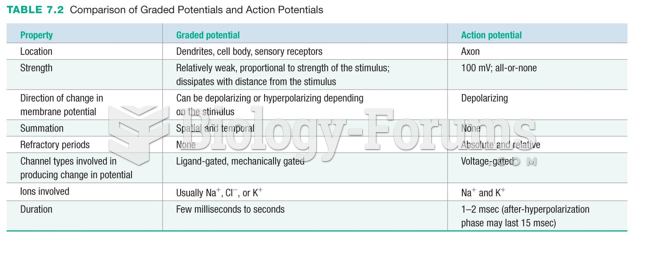|
|
|
Bacteria have flourished on the earth for over three billion years. They were the first life forms on the planet.
Chronic marijuana use can damage the white blood cells and reduce the immune system's ability to respond to disease by as much as 40%. Without a strong immune system, the body is vulnerable to all kinds of degenerative and infectious diseases.
Cancer has been around as long as humankind, but only in the second half of the twentieth century did the number of cancer cases explode.
Eat fiber! A diet high in fiber can help lower cholesterol levels by as much as 10%.
Side effects from substance abuse include nausea, dehydration, reduced productivitiy, and dependence. Though these effects usually worsen over time, the constant need for the substance often overcomes rational thinking.







